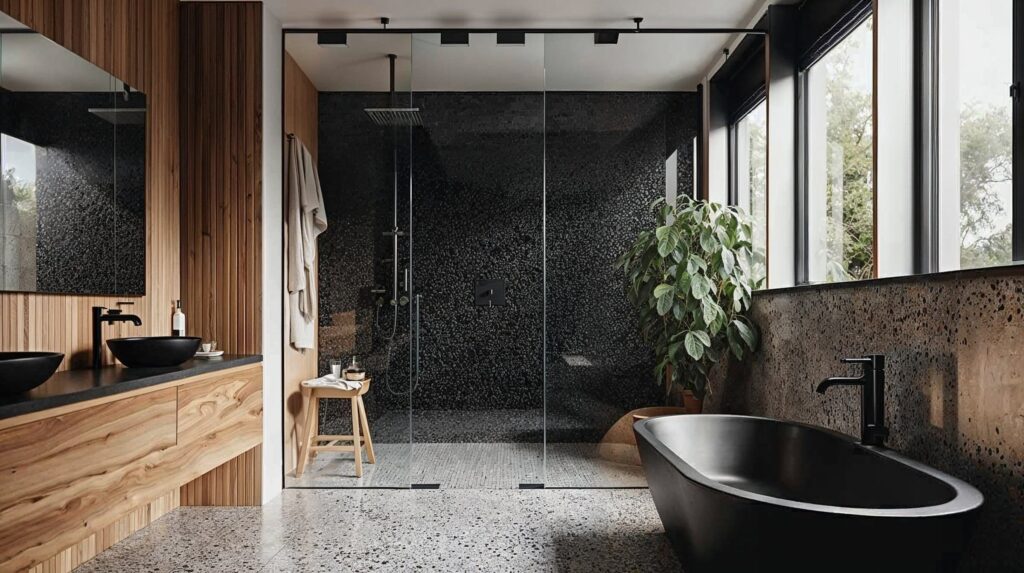In the realm of outdoor living spaces, innovation and sustainability are becoming increasingly intertwined, and nowhere is this more evident than in the domain of deck building. As concerns about environmental impact and resource depletion continue to grow, forward-thinking deck builders are embracing a diverse array of sustainable materials that extend far beyond traditional wood. These innovators are not only reshaping the landscape of outdoor design but also redefining the very notion of what a deck can be. One of the most prominent alternatives to wood in contemporary deck construction is composite decking. Comprised of a blend of recycled wood fibers and plastic, composite decking offers the timeless aesthetic of wood without the drawbacks of maintenance, susceptibility to rot, or deforestation concerns. Moreover, advancements in composite technology have led to products that mimic the natural grain and texture of wood while boasting superior durability and resistance to the elements. By utilizing recycled materials and minimizing the need for chemical treatments, composite decking represents a significant step towards a more sustainable future for outdoor spaces. In addition to composite decking, another innovative material gaining traction among eco-conscious builders is bamboo.
Renowned for its rapid growth and remarkable strength, bamboo offers a renewable alternative to traditional hardwoods. As a decking material, bamboo exhibits exceptional resilience to moisture, pests, and UV radiation, making it an ideal choice for outdoor applications. Furthermore, bamboo’s unique aesthetic appeal, characterized by its distinct grain patterns and warm tones, adds a touch of natural elegance to any outdoor setting. By harnessing the power of this fast-growing plant, deck builders can create environmentally friendly spaces that exude both style and sustainability. Beyond composite decking and bamboo, a host of other sustainable materials are emerging as viable options for eco-friendly deck construction. Among these are recycled plastic lumber, which repurposes post-consumer plastics into durable, long-lasting decking boards. By diverting plastic waste from landfills and oceans, recycled plastic lumber not only reduces environmental harm but also helps conserve finite natural resources. Similarly, reclaimed wood sourced from old barns, factories, and warehouses offers a rustic charm and a sense of history to deck projects while simultaneously reducing the demand for virgin timber.

The patio builders in dallas embracing these unconventional materials, deck builders can push the boundaries of design while promoting sustainability throughout the construction industry. In tandem with the adoption of sustainable materials, deck builders are also implementing eco-conscious construction practices to minimize waste and energy consumption. From utilizing rainwater harvesting systems to incorporating energy-efficient lighting and low-maintenance landscaping, these strategies further enhance the environmental credentials of modern deck projects. In conclusion, the evolution of deck building is marked by a shift towards sustainability and innovation. By embracing a diverse range of materials, from composite decking and bamboo to recycled plastics and reclaimed wood, builders are reimagining outdoor spaces as showcases of eco-friendly design. Through their creativity and commitment to sustainability, these pioneering deck builders are not only shaping the future of outdoor living but also paving the way for a more environmentally conscious construction industry as a whole.
 Moreover, granite countertops serve as a canvas for artistic expression. From intricate inlays to custom edge profiles, artisans have the freedom to unleash their creativity, transforming a simple slab of stone into a work of art. Each cut and carve is imbued with intention and purpose, adding depth and character to the final piece. In addition to their aesthetic appeal, granite countertops also contribute to sustainability efforts. As a natural resource, granite is both renewable and recyclable, making it an eco-friendly choice for environmentally conscious homeowners. Furthermore, its longevity ensures that it will endure for generations to come, reducing the need for frequent replacements and minimizing waste. Granite bathroom countertops stand as a testament to craftsmanship, showcasing the intricate artistry involved in their creation. From their natural beauty to their durability and sustainability, these majestic slabs of stone embody the perfect marriage of form and function. As they grace our bathrooms with their timeless elegance, they serve as a reminder of the enduring beauty found in the world around us.
Moreover, granite countertops serve as a canvas for artistic expression. From intricate inlays to custom edge profiles, artisans have the freedom to unleash their creativity, transforming a simple slab of stone into a work of art. Each cut and carve is imbued with intention and purpose, adding depth and character to the final piece. In addition to their aesthetic appeal, granite countertops also contribute to sustainability efforts. As a natural resource, granite is both renewable and recyclable, making it an eco-friendly choice for environmentally conscious homeowners. Furthermore, its longevity ensures that it will endure for generations to come, reducing the need for frequent replacements and minimizing waste. Granite bathroom countertops stand as a testament to craftsmanship, showcasing the intricate artistry involved in their creation. From their natural beauty to their durability and sustainability, these majestic slabs of stone embody the perfect marriage of form and function. As they grace our bathrooms with their timeless elegance, they serve as a reminder of the enduring beauty found in the world around us.